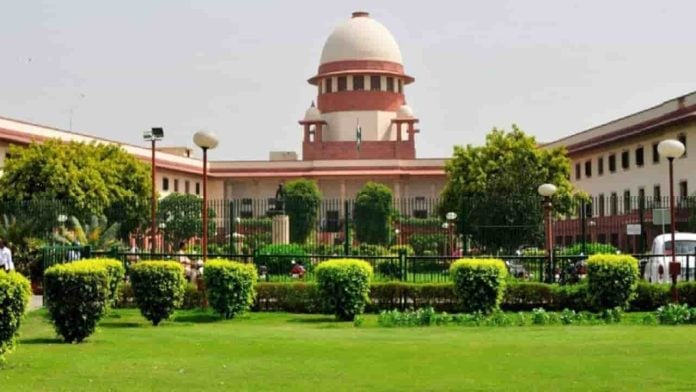A petition has been filed in the Supreme Court challenging the constitutional validity of Section 8 (3) of the Representation of the People Act, 1951, which provides automatic disqualification of representatives of elected legislative bodies, after their conviction in any offence and imprisonment of not less than two years.
Filed by Advocate Deepak Prakash on behalf of Aabha Muralidharan, a social worker from Malappuram, the petition challenged the validity of blanket and automatic disqualification of legislators, irrespective of the nature, gravity, and seriousness of the offences.
Mentioning that the immediate reason for approaching the Apex Court was the disqualification of Congress leader Rahul Gandhi, the plea contended that a blanket disqualification, irrespective of the nature, gravity, and seriousness of the offences, was against the principles of natural justice.
It said Section 8 (3) of the 1951 Act was ultra vires of the Constitution of India as it was in stark contradiction to Section 8(1), Section 8A, 9, 9A, 10, 10A, and 11 of the 1951 Act.
The plea claimed that Section 8(3) restrained the members from freely discharging their duties casted upon them by the voters of their respective constituency, which was against the principles of democracy.
It pointed out that Section 8(3) providing a blanket automatic disqualification on the basis of the quantum of sentencing and imprisonment was self-contradictory and created ambiguity to the proper procedure for disqualification.
As per the petition, the intent of the legislature while laying down the 1951 Act was to disqualify convicted elected members, who had committed serious or heinous offences.
It said the Code for Criminal Procedure, 1973 (CrPC) distinguished the “Classification of Offences” and categorised offences into cognisable and non-cognisable and bailable and non-bailable. Under such circumstances, the grounds for disqualification must be specific with the nature of offences as specified under the CrPC and not in a blanket form, noted the plea.
The petition said the present scenario provided a blanket disqualification, irrespective of the nature, gravity, and seriousness of the offences allegedly against the concerned Member.
The Act further provided for an ‘automatic’ disqualification, which was against the principles of Natural Justices, since various convictions were reversed at the appellate stage, and under such circumstances, the valuable time of a member, who was discharging his duties towards the public at large, would be rendered futile, it added.
Earlier on Friday, Congress leader Rahul Gandhi was disqualified from the membership of the Lok Sabha, following his conviction in a defamation case of 2019.
The Court of Chief Judicial Magistrate H.H. Varma at Surat in Gujarat had convicted Gandhi on March 23 in a defamation case for his alleged remarks against Prime Minister Narendra Modi in April, 2019.
After finding him guilty under Sections 499 (defamation) and 500 (punishment for defamation) of Indian Penal Code (IPC), the court sentenced Gandhi to two years in jail and also imposed a fine of Rs 15,000 on him.
Gandhi secured bail in the case on a bail bond of Rs 10,000. The court granted him a month’s time to file an appeal against the order.
Gandhi’s conviction under Sections 499 and 500 of the Indian Penal Code (IPC), both of which warrant a maximum sentence of two years, led to his disqualification from the Parliament, as per a Supreme Court order of 2013.
During a rally at Kolar in Karnataka ahead of the 2019 Lok Sabha elections, Rahul had allegedly said, “Nirav Modi, Lalit Modi, Narendra Modi. How come all the thieves have Modi as the common surname?”
BJP MLA and former Gujarat minister Purnesh Ishvarbhai Modi had filed a defamation suit against Gandhi in Surat, alleging the remark had defamed the entire Modi community. On the basis of his complaint, a case was registered against Gandhi at Adajan Police Station in Surat district.


